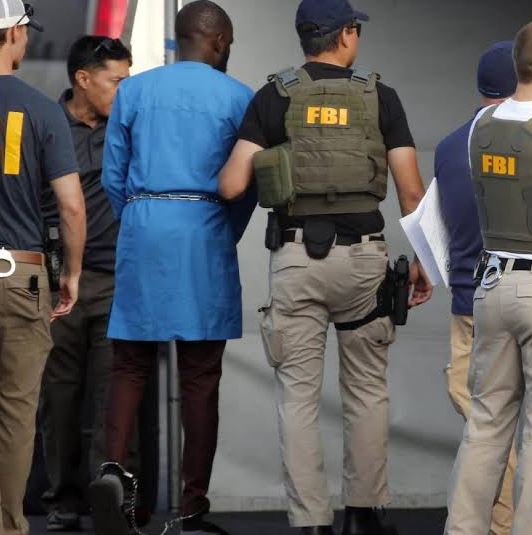On August 13, 2024, Yomi Jones Olayeye, a 40-year-old Nigerian from Lagos, was detained at John F. Kennedy International Airport in New York City. Olayeye faces serious allegations of orchestrating a scheme to fraudulently secure at least $10 million in COVID-19 unemployment benefits.
The indictment includes charges of wire fraud conspiracy, wire fraud, and aggravated identity theft. Following his initial appearance in the Eastern District of New York on August 14, 2024, Olayeye is scheduled to appear in a federal court in Boston for further proceedings.
Details of the Fraudulent Activities
Between March and July 2020, Olayeye, operating under the alias “Sabbie,” along with his co-conspirators, is accused of defrauding various pandemic assistance programs. These programs include:
- Traditional Unemployment Insurance (UI)
- Pandemic Unemployment Assistance (PUA)
- Federal Pandemic Unemployment Compensation (FPUC)
The fraudulent activities targeted state unemployment insurance agencies across multiple states, including Massachusetts, Hawaii, Indiana, Michigan, Pennsylvania, Montana, Maine, Ohio, and Washington. Olayeye and his team allegedly used stolen personally identifiable information (PII) obtained from illicit online forums. They falsely claimed eligibility for these benefits as if they were state residents affected by the COVID-19 pandemic.
Fraudulent Transactions and Concealment Tactics
The criminal operation involved several sophisticated steps:
- Acquisition of Stolen PII: The conspirators purchased stolen PII to create fraudulent claims for UI, PUA, and FPUC benefits.
- Creation of Bank Accounts: They used this PII to open U.S. bank and prepaid debit card accounts to receive the funds.
- Money Transfers: U.S.-based accomplices were recruited to receive and transfer the stolen funds through cash transfer applications.
- Cryptocurrency Purchases: The illicit proceeds were used to buy Bitcoin through online platforms.
- Concealment Measures: To obscure their connection to Nigeria, the group used leased U.S. Internet Protocol addresses for their transactions.
Overall, the conspiracy applied for over $10 million in fraudulent benefits, successfully obtaining more than $1.5 million.
Legal Consequences and Prosecution
The charges of wire fraud and wire fraud conspiracy carry severe penalties, including up to 20 years in prison, three years of supervised release, and fines of $250,000 or double the gross gain or loss. Additionally, the charge of aggravated identity theft mandates a minimum of two years in prison, which would be served consecutively with any sentence from the wire fraud convictions. Sentencing will be determined by a federal district court judge, guided by the U.S. Sentencing Guidelines.
The case is being prosecuted by Assistant U.S. Attorney Seth B. Kosto, Deputy Chief of the Securities, Financial & Cyber Fraud Unit. The investigation and announcement were conducted by Acting U.S. Attorney Joshua S. Levy, Special Agent in Charge Andrew Murphy of the U.S. Secret Service Boston Field Office, Jonathan Mellone of the Department of Labor Office of Inspector General, and Jodi Cohen of the Federal Bureau of Investigation, Boston Division.
Ongoing Efforts to Combat COVID-19 Fraud
In response to the surge in pandemic-related fraud, the Attorney General established the COVID-19 Fraud Enforcement Task Force on May 17, 2021. This task force consolidates resources from the Department of Justice and various government agencies to enhance the investigation and prosecution of pandemic fraud. It aims to prevent fraud, identify fraudulent schemes, and improve coordination across agencies.
For more details on combating COVID-19 fraud, visit the Department of Justice’s COVID-19 Response and Combating Fraud webpages.
Reporting Fraud
If you have information on potential COVID-19 fraud, report it through the Department of Justice’s National Center for Disaster Fraud (NCDF) Hotline or via the NCDF Web Complaint Form.
Note: The details in the charging documents are allegations. The defendant is presumed innocent until proven guilty beyond a reasonable doubt in a court of law.
